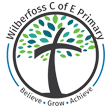History
History at Wilberfoss: The Big Picture!
Each year, children will build on their knowledge of chronology, making links with prior learning to gain an understanding of how historic events impact the present. History will open a window into the complexity of people’s lives, diversity of societies and relationships between different groups, as well as their own identities and challenges of their time.
At Wilberfoss, children are to be given regular opportunities to interpret, analyse and question a range of historical sources and artefacts in order to become critical thinkers by the time they leave in Year 6. Trips and experiences are planned in to bring learning to life and inspire curiosity.
Intent
At Wilberfoss, our history curriculum aims for knowledge to be learnt in EYFS and KS1 that provides a foundation for concepts taught in KS2. In EYFS, children’s learning focuses on developing a strong foundation of their own history and the chronology of this. Y1 history centers around aspects closer in time to children’s own experiences whereas Y2 history begins to look at more abstract ideas which are further away in time. In KS2, the curriculum provides with a pupils a strong grounding in British history, from the Stone Age to the Iron Age, the first settlements through Roman Britain, Anglo-Saxon, the Vikings and World War Two. While studying these periods, the units explore themes including invasion and settlement and beliefs.
Our local area is utilised to support the teaching of history. Local history units explore York’s past including the Romans (studied in Year 3) to the Vikings (studied in Year 4). York and the surrounding area has a wealth of local museums, which are used to support the teaching of history and to enable children to see first-hand evidence of the past.
Implementation
History is taught in EYFS through adult directed activities and provision areas/provocations. The key objectives for Years 1-6 are taken from the National Curriculum and planning, teaching and learning is supported by the use of ‘Key Stage History’. The key historical concepts of continuity and change, cause and consequence, similarity, difference and significance run through the curriculum as children develop their chronological knowledge and understanding of our country and the wider world. Discussion and effective questioning by teachers is key to allowing pupils to recall new knowledge. This also helps children to make links between new material and prior learning.
Knowledge Organisers, which provide key knowledge, significant dates and core vocabulary, are created to take home prior to each topic. Key vocabulary (taken from the Knowledge Organiser) is displayed on every classroom door along with clear definitions. These are then referred to throughout the topic and opportunities for retrieval practice are included in History lessons to ensure knowledge is transferred into long-term memory. These activities may require children to remember learning from the previous lessons, topics or even years to ensure children’s ability to recall powerful knowledge is strong. As well as this, timelines in every classroom refer to eras the children have previously studied and encourage them to reflect on prior learning.
Children complete low threat/high challenge quizzes independently to support formative assessment and pre-teaching is used where necessary to ensure children are all able to access, understand and retain key knowledge and vocabulary. Work to praise, any misconceptions and necessary intervention is recorded on the whole class feedback sheets after each lesson and used to inform future lessons.
Impact
The children in EYFS are constantly assessed and misconceptions are addressed immediately or through 'Feeding Forward' where these can be addressed through provision enhancements or during adult directed activities. A GSA (gap and strength analysis) is also completed each half term to identify any areas which need to be addressed. In KS1 and KS2, specific recall activities, such as quizzes, are used to enable teachers and children to monitor and assess the depth of understanding of core substantive and disciplinary skills. This formative assessment is used to support future planning.
Pupils’ work, quizzes and short assessment tasks at the end of each unit are used to demonstrate children’s learning. Children have opportunities to ‘work like a historian’ by using historical vocabulary in their speech and writing; looking at and evaluating sources of evidence; and constructing arguments.
The class teacher will assess each child’s attainment and enter this onto Insight and will monitor whether the child is on track to be the expected standard by the end of the year. In order to support retention of knowledge and development of skills, whole class feedback sheets will be completed, highlighting any areas for development with individuals and whole class. These forms will be passed up through the years to support the planning and pre-teaching in future units. The subject leader talks to pupils about their learning as part of the monitoring process. Children’s books and knowledge organisers are used to guide discussion and provide the subject leader with the information required to measure how much of the powerful knowledge and core vocabulary has been remembered and understood.
Golden Threads
Disciplinary Knowledge: Second Order Concepts
disciplinary knowledge secondary concepts.pdf
 Wilberfoss C of E Primary School
Wilberfoss C of E Primary School